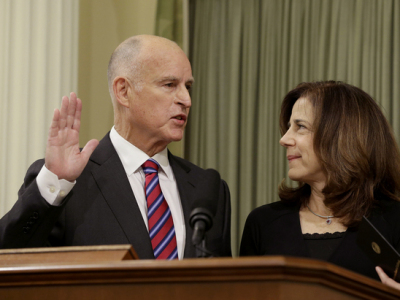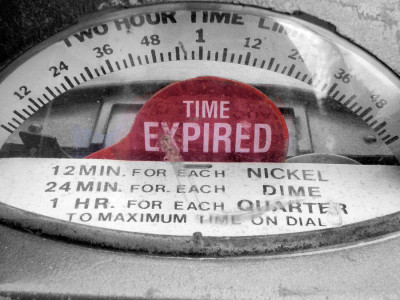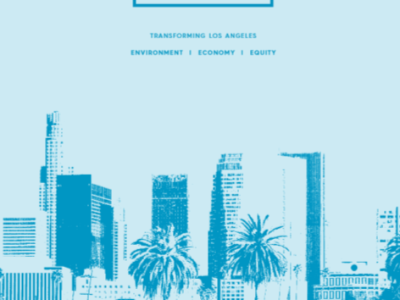Climate Change
The Climate Rides Again
Support the Emmett Institute in the California Coast Climate Ride!
Regular readers may remember Ted Parson’s Legal Planet post about his experience on last year’s NYC-DC Climate Ride. Ted described the ride as “beautiful, hard, and moving.” (Pun possibly intended.) Along with fellow riders Andy Sabin and Dan Emmett, Ted raised a ton of money for our program and brought attention to the work of …
Continue reading “The Climate Rides Again”
CONTINUE READINGCalifornia Sets 2030 Climate Emissions Target
And it looks like the right goal
Today, California Governor Jerry Brown signed an executive order setting a statewide greenhouse gas emissions target to be achieved by 2030, at 40% below 1990 levels. It’s an historic announcement that puts California in the vanguard of jurisdictions who have committed to goals in this 2030 timeframe (it matches the E.U.’s). California’s new 2030 target takes its place alongside, …
Continue reading “California Sets 2030 Climate Emissions Target”
CONTINUE READINGClimate Fatigue
You might be tired of climate change. But climate change isn’t tired of you.
I gather that people are tired of hearing about climate change. I’m tired of hearing about climate change, too. Sadly, Nature just doesn’t care that much about entertaining us. It’s going to be climate change this year, climate change next year, climate change the year after that . . . But don’t worry, it won’t …
Continue reading “Climate Fatigue”
CONTINUE READINGCarbon Vouchers: A Small-Government Approach to Climate Action
How to limit climate change without giving the Feds enforcement powers or revenue.
What I’m going to sketch here isn’t a zero government approach. But the government’s role is very limited: federal agencies don’t do any enforcement and the government doesn’t touch any revenue from the scheme. So this approach deals with the concern that a carbon tax or something similar would either expand EPA’s ability to abuse …
Continue reading “Carbon Vouchers: A Small-Government Approach to Climate Action”
CONTINUE READINGHas EPA’s Proposed NSPS Expired?
Responding to claims that EPA must withdraw its proposed rules to control power-plant GHGs under CAA § 111
Challenges to EPA’s emergent program to regulate greenhouse gas (GHG) emissions under Clean Air Act section 111 continue to mount. Recently, the Attorneys General of 19 states sent a joint letter to EPA arguing that because EPA failed to finalize its proposed New Source Performance Standard (NSPS) for GHG emissions within one year—as the Clean …
Continue reading “Has EPA’s Proposed NSPS Expired?”
CONTINUE READINGClimate Gag Rules and the First Amendment
Are climate gag rules constitutional? Sometimes yes, sometimes no.
There have been recent reports about state agencies that forbid employees from discussing climate change. Since this is obviously a restriction on speech, it’s natural to wonder what the First Amendment has to say on the subject. The answer depends in large part on the kind of employee speech at issue. Let’s being with a ban …
Continue reading “Climate Gag Rules and the First Amendment”
CONTINUE READINGThe Brazilian Deforestation Puzzle
Deforestation went down for a decade. Now it’s going up. The reasons aren’t clear.
Brazil’s rate of deforestation went down dramatically over the last ten years. It’s not completely clear why that’s happened. The trend now seems to be reversing (or at least encountering an upward blip). But it’s not clear why that’s happening either. I wish I had a clear explanation to give you. A big part of …
Continue reading “The Brazilian Deforestation Puzzle”
CONTINUE READINGLos Angeles Releases First-Ever Urban Sustainability “pLAn”
Envisioning greener energy, cleaner air, and reduced consumption in LA by 2035
Perhaps no metropolis is better positioned than Los Angeles to pioneer ground-breaking environmental initiatives. As the second-largest U.S. city, and with the country’s largest municipally owned utility, a world-class research university–UCLA, and the blessings of abundant sunshine and a temperate Mediterranean climate, Los Angeles could serve as a global model for urban sustainability. Today, the …
Continue reading “Los Angeles Releases First-Ever Urban Sustainability “pLAn””
CONTINUE READINGStick a Lemon In It
Are recent East Bay water troubles a taste of what lies ahead?
What makes a city world-renowned? For New York (according to the NYC Department of Environmental Protection), it’s the quality of its drinking water. Should this be so surprising? After all, what more fundamental connection does a city have to its residents and visitors than the life-sustaining water that it provides? Recent events in San Francisco’s …
Continue reading “Stick a Lemon In It”
CONTINUE READING










